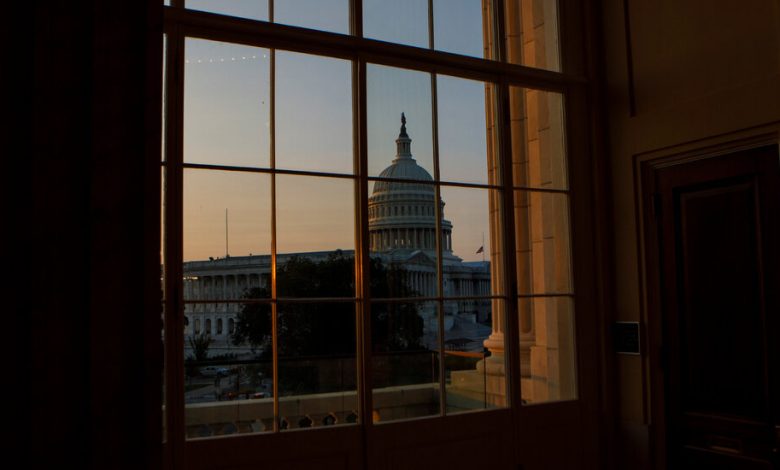House Passes Bill to Insulate Federal Workers, Addressing a Trump Threat

WASHINGTON — The House passed legislation on Thursday aimed at curbing a president’s authority to hire and fire tens of thousands of federal workers, moving to bolster the job security of civil servants targeted by former President Donald J. Trump and his allies as disloyal “deep state” operatives.
The 225-to-204 vote, which was mostly along party lines with almost all Republicans opposed, was a response by the Democratic-led House to Mr. Trump’s attacks on federal workers, which have continued since he left office.
Mr. Trump signed an executive order in 2020 allowing federal agencies to reclassify workers in a way that would strip them of the job protections that cover most federal employees and effectively turn their positions into political patronage posts. Mr. Biden rescinded Mr. Trump’s order in 2021 when he took office, in a move hailed by federal union leaders who had decried Mr. Trump’s policy as an unprecedented undermining of the civil service.
The Trump administration argued the order was intended to remedy an issue federal auditors had long raised: that firing poor performers in the federal workplace was too complicated and slow. But privately, Trump administration officials described it as an attempt to purge civil servants they deemed without evidence to be part of the “deep state” working against them. The term is usually used to describe a shadowy network of agency or military officials who secretly conspire to influence government policy.
The bipartisan legislation, led by Representatives Gerald E. Connolly, Democrat of Virginia, and Brian Fitzpatrick, Republican of Pennsylvania, would prevent a president from placing federal employees under a new classification — what the Trump administration had termed “Schedule F” — without the approval of Congress. All but six Republicans opposed it.
“Blind loyalty and ideological purity tests must never determine who we trust with securing our nation’s orders, fortifying federal IT systems, caring for seniors and veterans,” Mr. Connolly said. “Do we really think a government of political hacks and sycophants is in the best interest of the American people?”
Democrats in the Senate have introduced a parallel bill, but the measure’s most straightforward path into law may be the annual defense policy measure. The House passed its version of the legislation in July, containing Mr. Connolly’s civil service measure; the Senate has yet to pass its bill.
Mr. Trump has threatened to resurrect the policy should he return to the White House, and he has turned the issue — on its face an arcane matter of labor classification — into a touchstone of the far-right culture wars. At rallies, he has promised to renew his fight to weaken the job protections, telling a rally crowd in March that “the deep state must and will be brought to heel.”
He has even fund-raised off the issue, inviting his followers to donate to the “Official Drain the Swamp Fund.”
“I implemented Schedule F so that presidents could have the ability to fire federal employees who were bypassing democracy for their own benefit,” Mr. Trump wrote in one such entreaty. “These employees are doing a disservice to America and are the very swamp creatures that we’re trying to get rid of.”
Earlier this week, Representative Marjorie Taylor Greene, Republican of Georgia and one of Mr. Trump’s most strident supporters, railed against the legislation in an Instagram dispatch from a rooftop bar in Washington, telling her followers that the executive order had been particularly important to Mr. Trump.
“He wanted to be able to fire people and remove them out of positions controlling the government,” Ms. Greene said. “It’s so important for any president to be able to do that.”
Representative James R. Comer, Republican of Kentucky, said he opposed the bill to protect federal workers, warning in a speech on the House floor that civil servants could refuse to carry out policies ordered by the president.
“We’ve got a scenario here in Washington, D.C., where the unelected, unaccountable bureaucrats are calling the shots regardless of the will of the American people,” Mr. Comer said. “That’s why we support President Trump’s proposal.”
Mr. Trump’s initial order did not have a major effect on the federal work force because he signed it in the waning months of his presidency, and the order gave federal agencies seven months to conduct internal reviews to determine which existing employees could be reclassified.
But if Mr. Trump or another Republican who wished to reinstate the order were elected in 2024, tens of thousands of workers could potentially be affected.
The order created a new class of federal workers that would be made up of career staff members who are involved in “confidential, policy-determining, policymaking, or policy-advocating” work.
